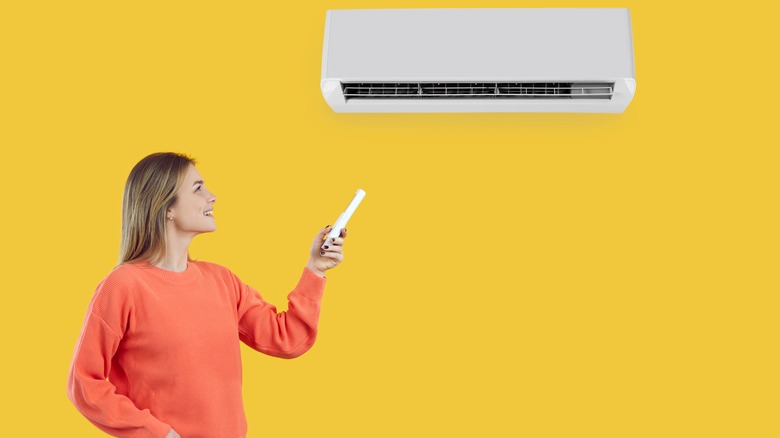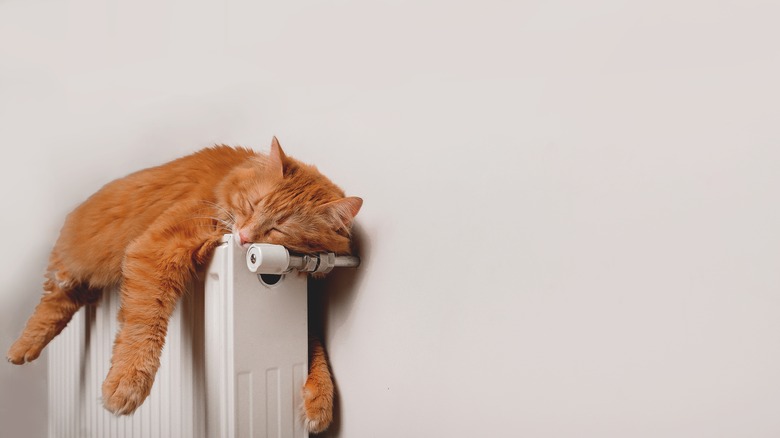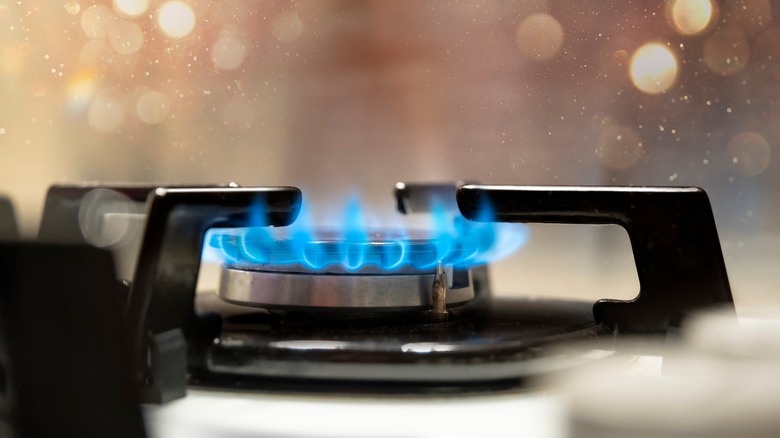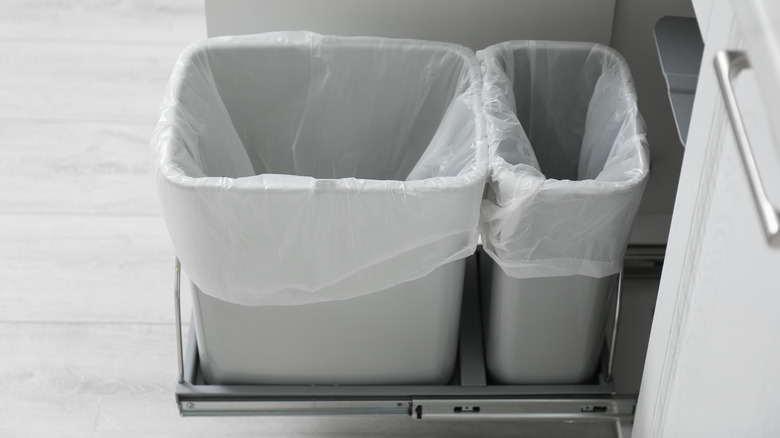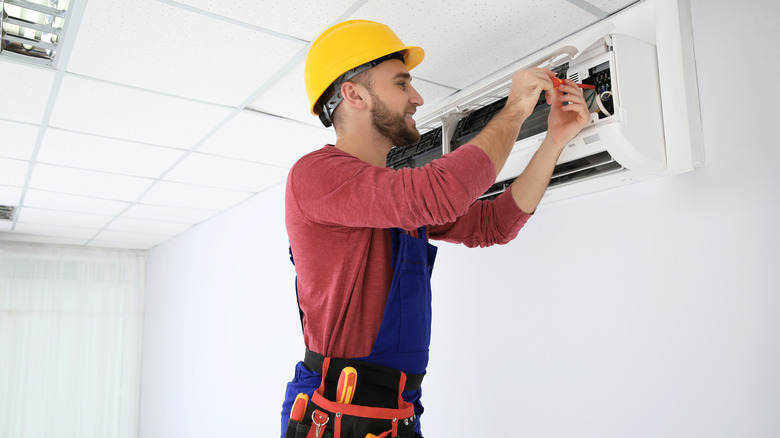The 5 Spots In Your Home Where You Should Never Install An AC Unit
There are plenty of mistakes everyone makes when buying an AC unit, but beyond that, we sometimes make mistakes with installation (without even knowing it). And, no matter how good the deal on the AC was, you would never really enjoy value for money if you place it just anywhere.
It may seem tempting to just put your air conditioner somewhere with a little shade and call it a day, or to put the new unit right where the old one was before, but those options can cause more trouble later on. For instance, installing your AC unit where the inside parts can come in contact with water is an ingredient for disaster, as liquids can cause severe damage to machinery. And if it's installed where there is a lot of direct sunlight, then it will struggle to blow cool air (via Energy Saver). Which then brings us to the question, where should you install an AC? To find out, let's cross a few of places off the list!
1. Always avoid the hotter parts of the house
Installing your AC where there's a lot of direct sunlight and heat will have your AC unit pushing harder with little to no cooling results. So, where are the hotter parts of the house? Firstly, windows are a primary source of heat transference in summer. Especially windows facing east and west, which are hit most by direct sunlight. Secondly, A third of your home's heat also comes from the roof, says Star Air Conditioning. And thirdly, the amount of heat and steam generated in the kitchen during cooking is that significant. Avoid direct contact with these core places.
While placing the unit in the hotter part of the house seems logical, that's the exact opposite of what you want to do. The unit should always be on the cooler side to avoid straining the engine. If the air is too hot, the unit ends up burning more energy and running for longer periods. This will eventually lead to more repairs and costlier bills (via Ambient Edge).
2. Avoid hiding spots
We understand that air conditioners might not be pleasing to the eyes and might ruin your multi-million dollar or DIY decor. But please, avoid hiding them behind plants or couches. AC units require the circulation of air to function. Putting plants around the machine not only restricts airflow but also causes heated air from the unit to recirculate and reduces its cooling efficiency. Hide it but don't smother it, insists Direct Energy.
The experts at Diamond Blue Air recommend leaving at least 60 inches of space between your air conditioning unit and other items in all directions (top, bottom, left, right, front and back) to maintain proper airflow and keep things working and in great shape. Not sure how much space you're leaving? Simply measure your dimensions with a tape rule or long ruler. You also want to ensure your machine isn't being blocked by smaller home decor, like potted plants or shelves on the wall above.
3. Avoid flammable areas and materials
We like to think of the air conditioning unit as a hermit — isolation works best. This is because the unit tends to use a lot of energy, and if it is smothered by other heat-generating appliances, a fire could burst out. While this isn't a hard and fast rule, to avoid unfortunate events, keep refrigerators, TVs, washing machines, lamps, and other electrical items far away. If you can, also keep your air conditioning unit away from your curtains and blinds too.
Since fires caused by air conditioning units are somewhat common, Climate Environmental writes that things like paper, leaves, debris, and even hand sanitizer should be kept at least three meters away. In the case of a fire outbreak, these materials could contribute to the fire spreading even faster. Additionally, Electronics 360 warns against keeping flammable gasses like pesticides, antifreeze, paint, and even coffee creamers near your AC Unit.
4. Avoid the trash can
Many owners tend to put their trash and recycle bins right next to their outdoor AC unit, especially in places where the law states that bins should not be visible in the street. While it may seem like a great place to keep them, PS Management explains there are several reasons why you should find a new location to recycle recyclable bins. The first and most important one is the smell.
You see, your air conditioning unit pulls in air from its nearby surroundings to function — including that nasty trash smell from outside. It's bad enough taking the smelly trash out to the dumpster the first time; there's no reason to get a big whiff of it again two days later when you're trying to relax. Beyond convenience, the experts at WM Waste Management Services write that this is hazardous to your health and safety. Short-term exposures can cause breathing difficulties, chest pain, and airway hyperreactivity, while continuous exposure can cause long-term health problems such as asthma and chronic obstructive pulmonary disease (COPD).
Keep the indoor trash away too. That's another fire hazard, and you don't want that smell blowing around the house either.
5. Avoid sharing circuits
According to J & M Air Conditioning & Heating, air conditioners use a lot of power. They use so much power that adding your AC to a circuit that already has other appliances working can cause the circuit breaker to trip, shutting down everything else in the process. Installing your AC with a circuit breaker of its own is an easy safety measure to ensure it doesn't cause a power outage by overloading your home's electrical system. This is a huge safety hazard, especially if you have a home office or workshop in your garage. Not to mention, a power outage can take your air conditioner down in a second. And since the average repair cost is over $300, this isn't an expense you want to have from time to time.
It's also essential to ensure that your circuit breaker is the right size for your AC unit. If it's too heavy, it may overload the circuit breaker and cause problems. If you aren't sure, have a qualified electrician come check your home's wiring (via American Refrigeration).
